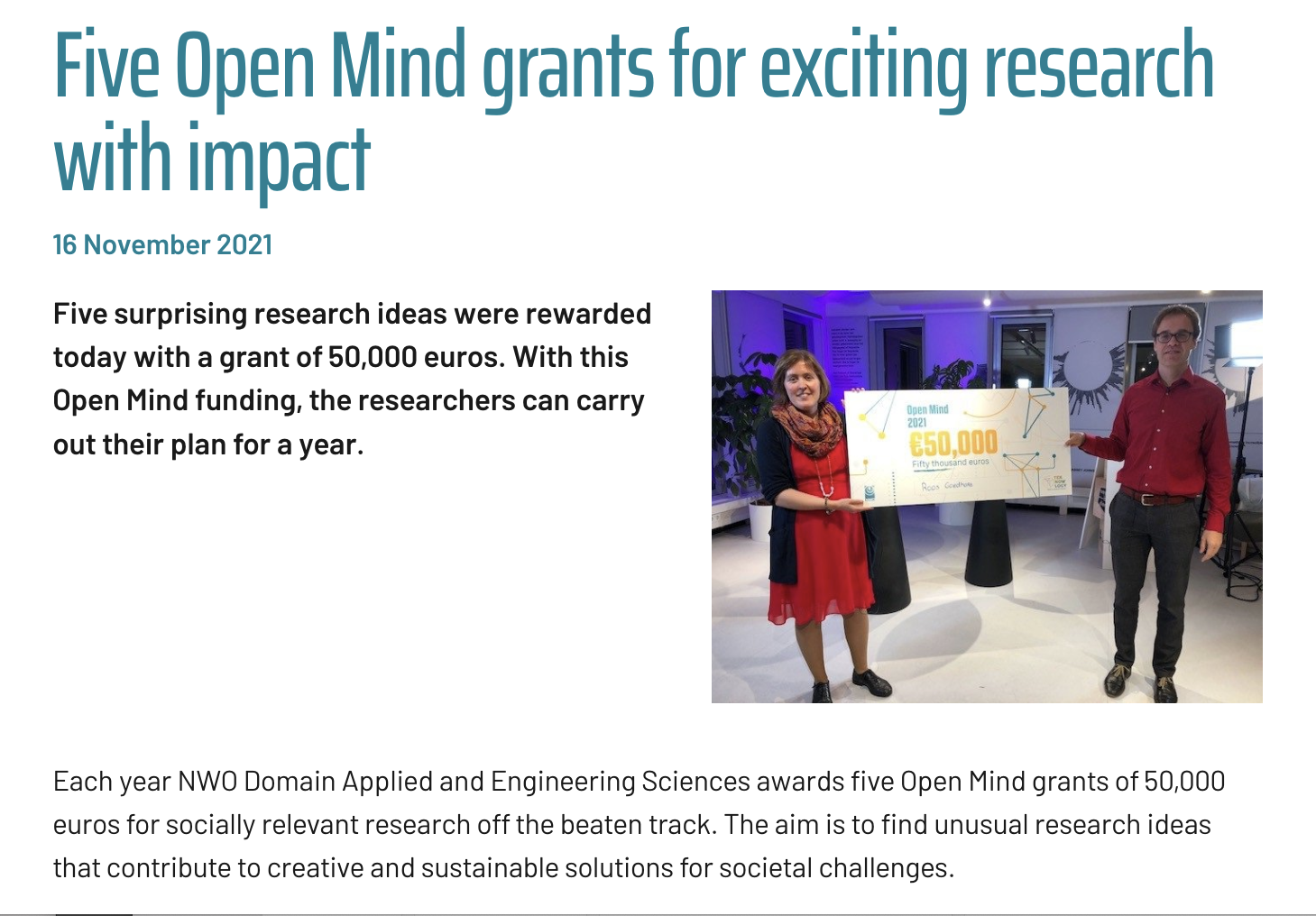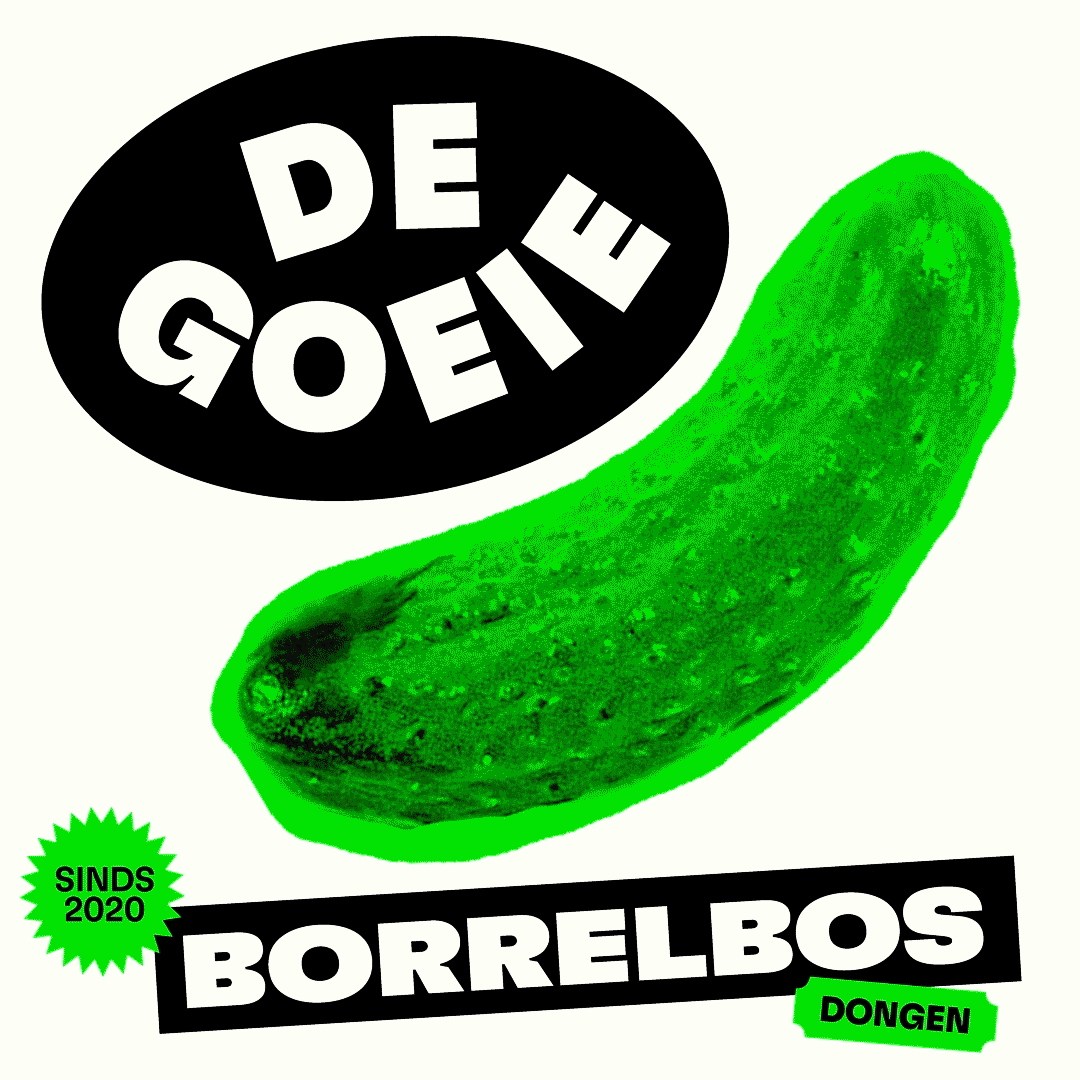Wood for Food
A research project that turns woody waste into edible protein
What if we could eat EVERYTHING from a plant, including the stem, leaves and even roots? And what if we can turn these currently ‘inedible plant parts’ into protein – the most essential food?
Play the video for a summary of the project.
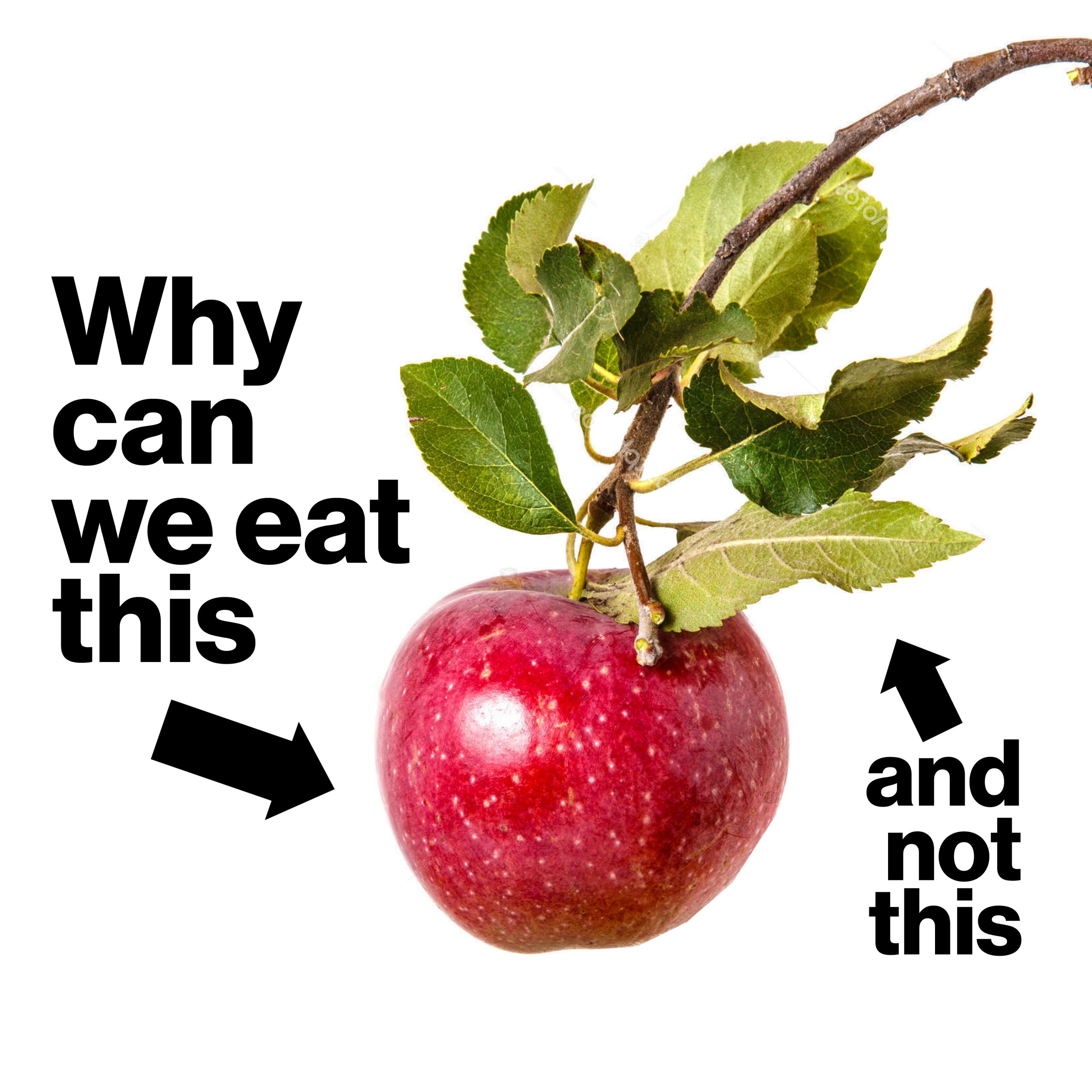
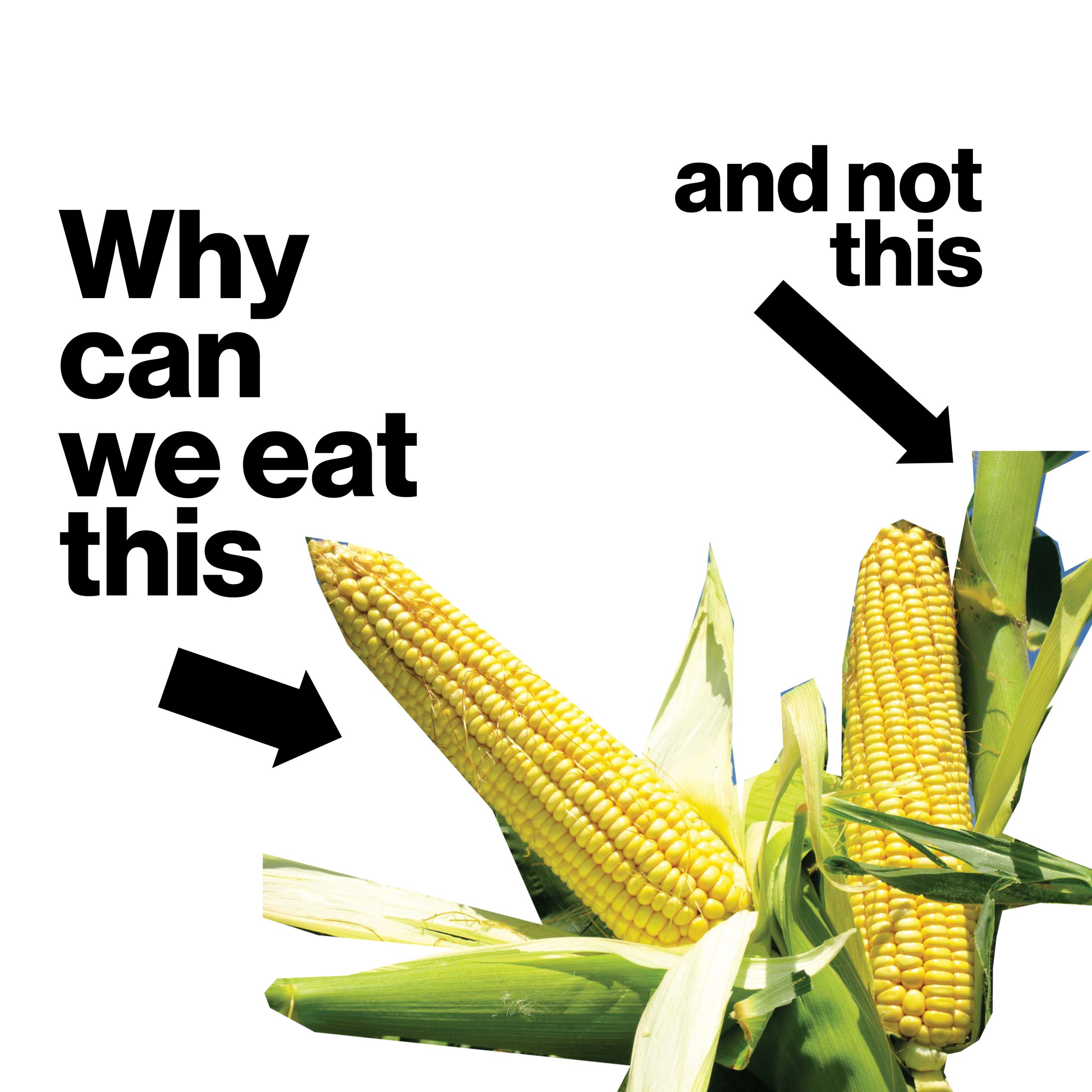
Why can't we eat the woody parts?
One of the main reasons we cannot digest ’inedible’ plant parts is lignin, the woody part of the plant fibre. Humans, like most organisms, lack the enzymes to digest lignin. But certain types of fungi can. By eating the woody parts, they transform the lignin into protein-rich fungal biomass.
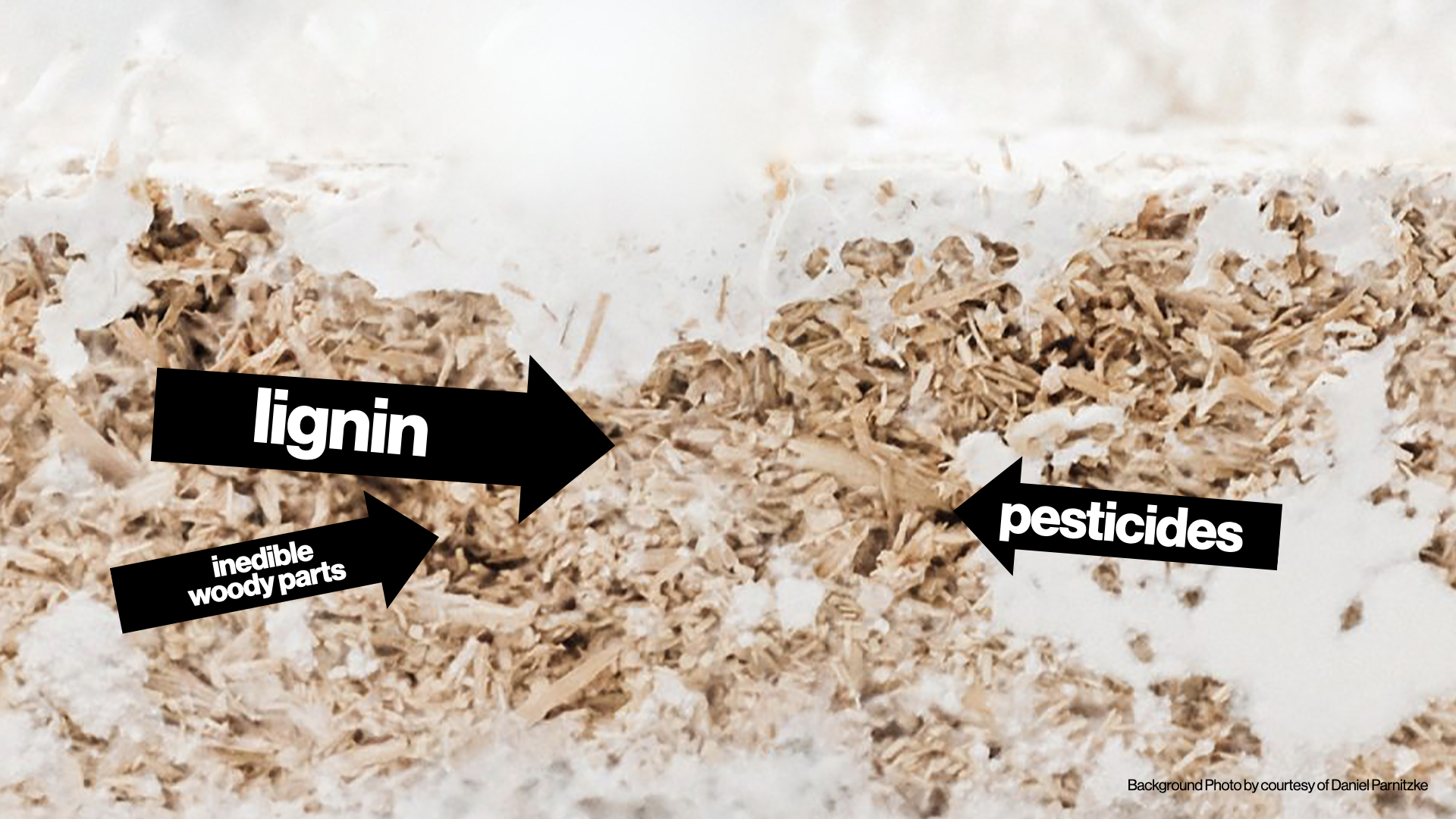
By converting this inedible, woody waste into protein, we can solve multiple issues:
If more food can be produced with the same crops, less land is needed to produce enough food. This means agricultural land can be used for other purposes, e.g. rewilding. Or, when the world population keeps growing, the same amount of land can produce more food.
Another advantage of the wood-to-protein is that this type of protein does not require light to grow. Therefore it can be grown in a closed, vertical system, requiring only little land. By growing it in a closed system, the biological process is controlled and there is no leaching of nutrients or greenhouse gases to the environment. Besides, proteins can be grown independent of local climate and season, which allows protein production in remote areas.

The research
Currently the conversion of wood to protein is not high enough to make the complete woody substrate edible. The fungus needs to be ‘motivated’ to degrade the lignin further, into something edible for humans. During my research I tested different techniques to stimulate the fungus to grow biomass and degrade lignin.

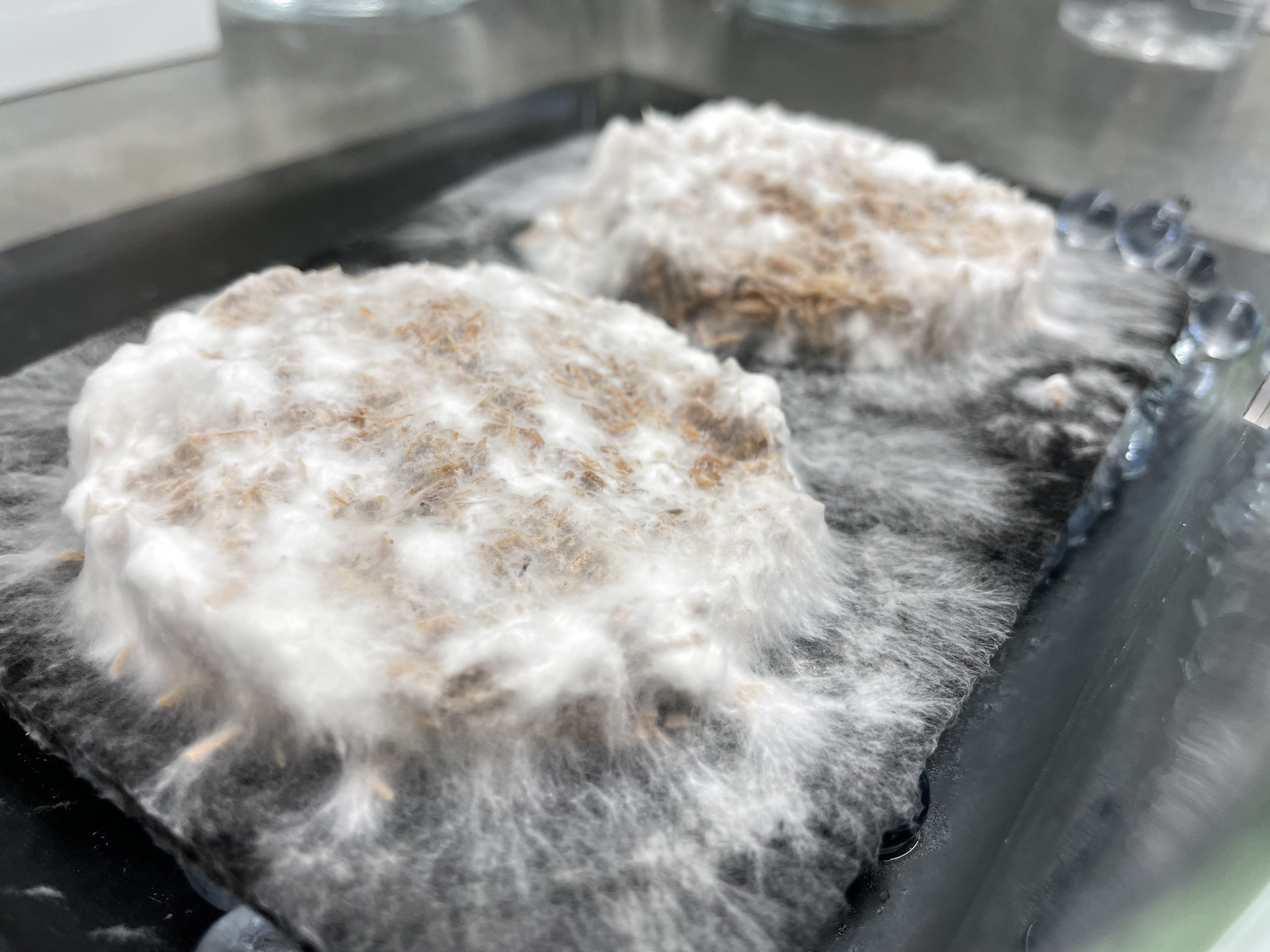
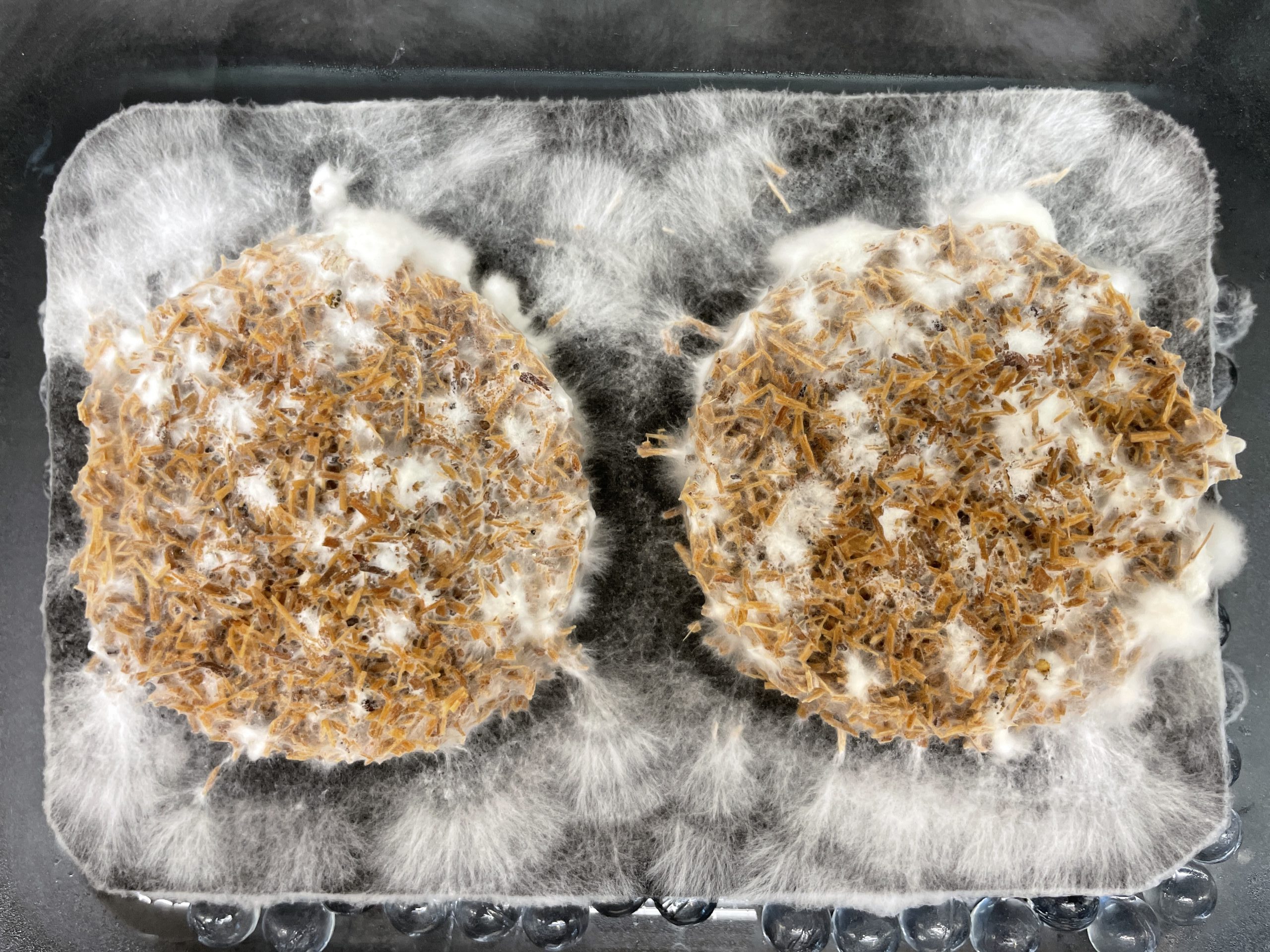
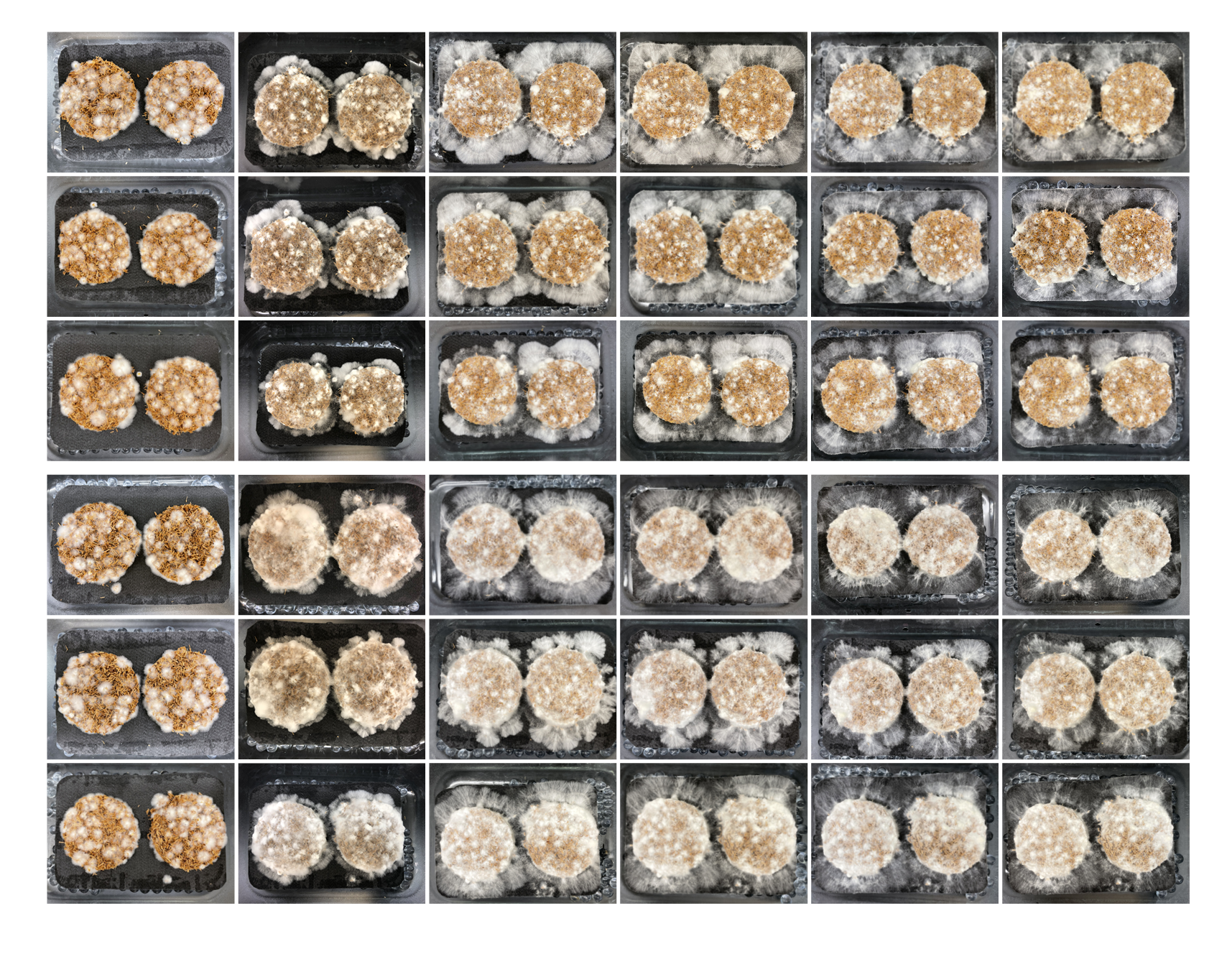
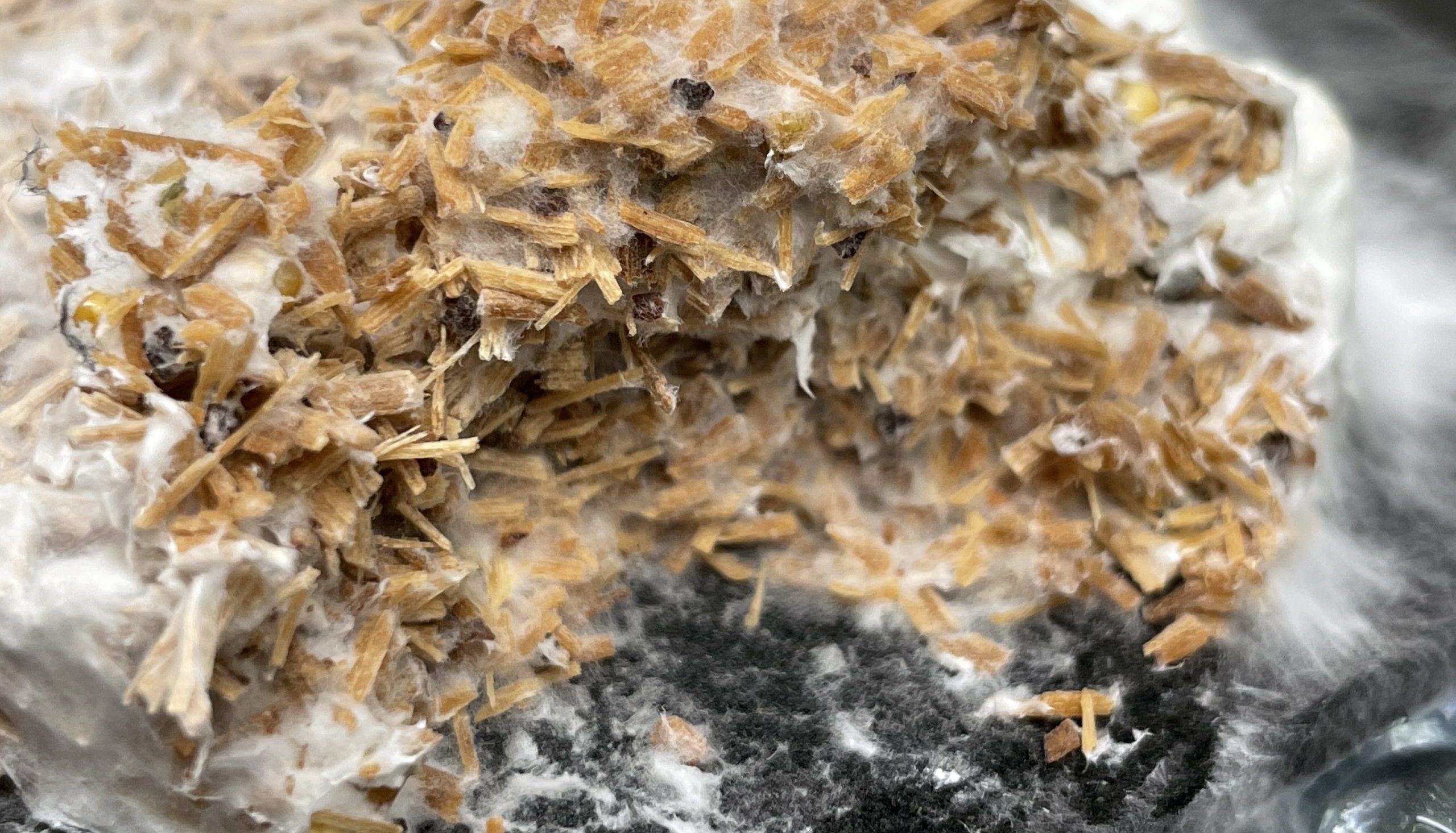
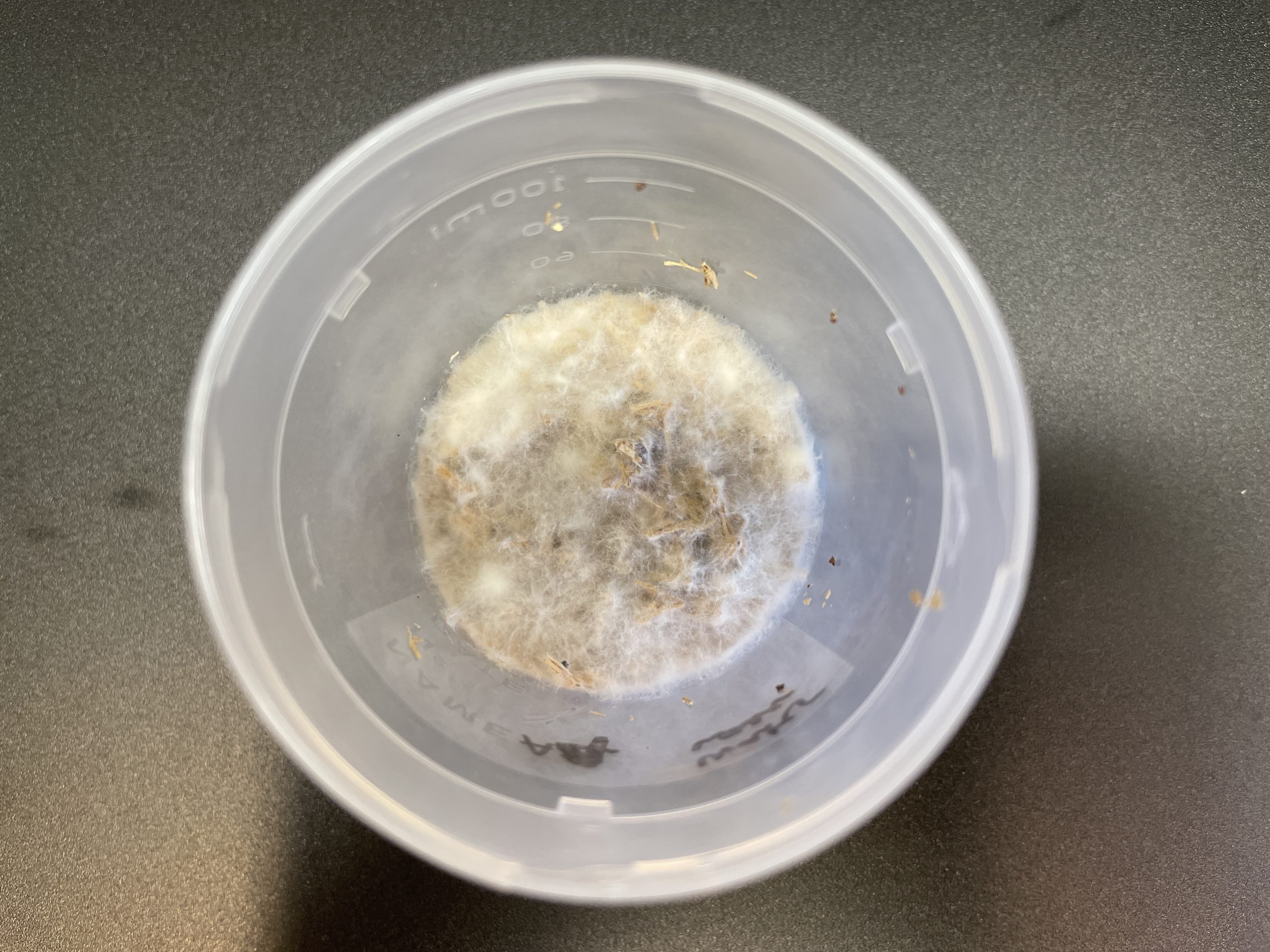
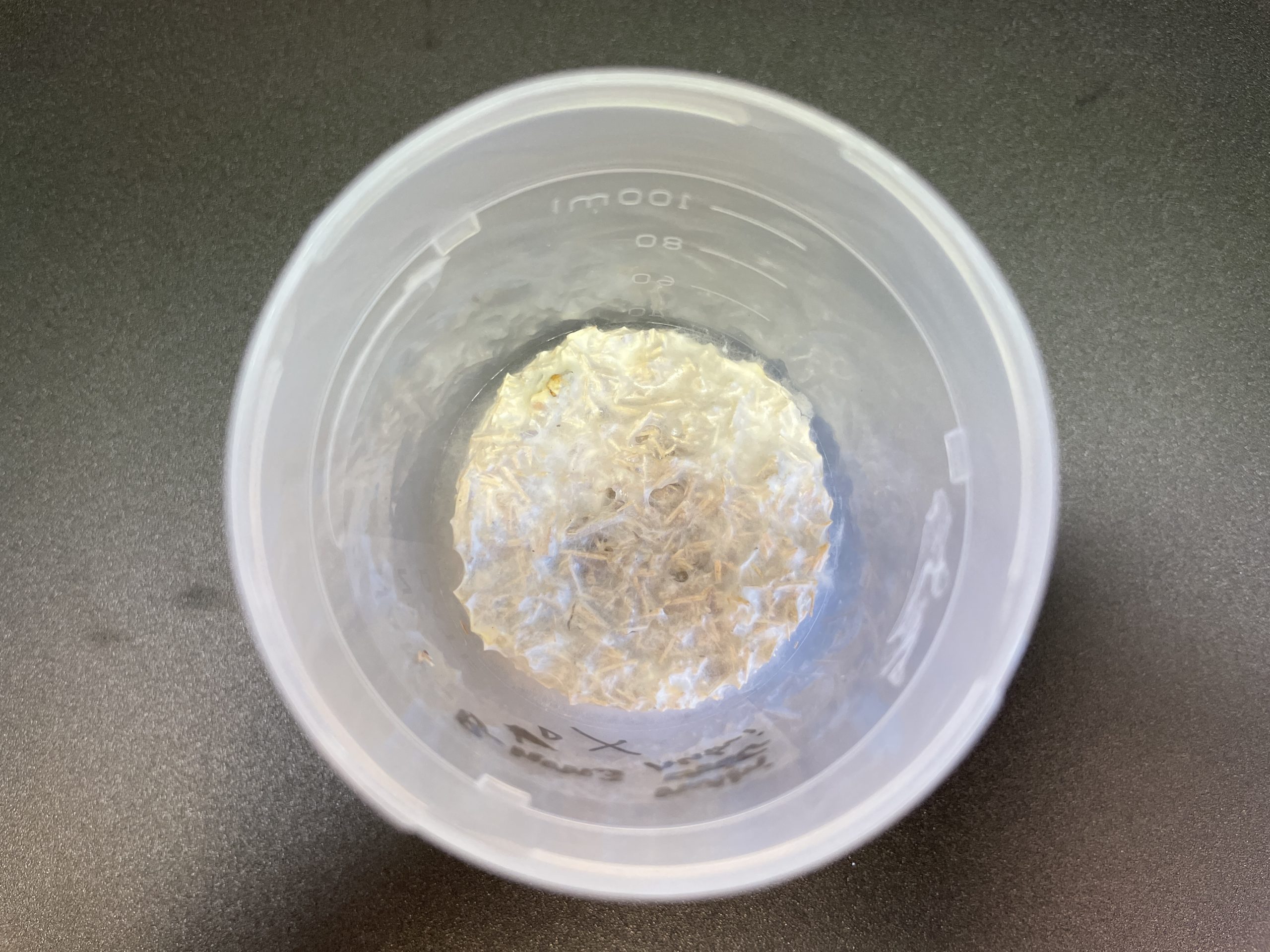
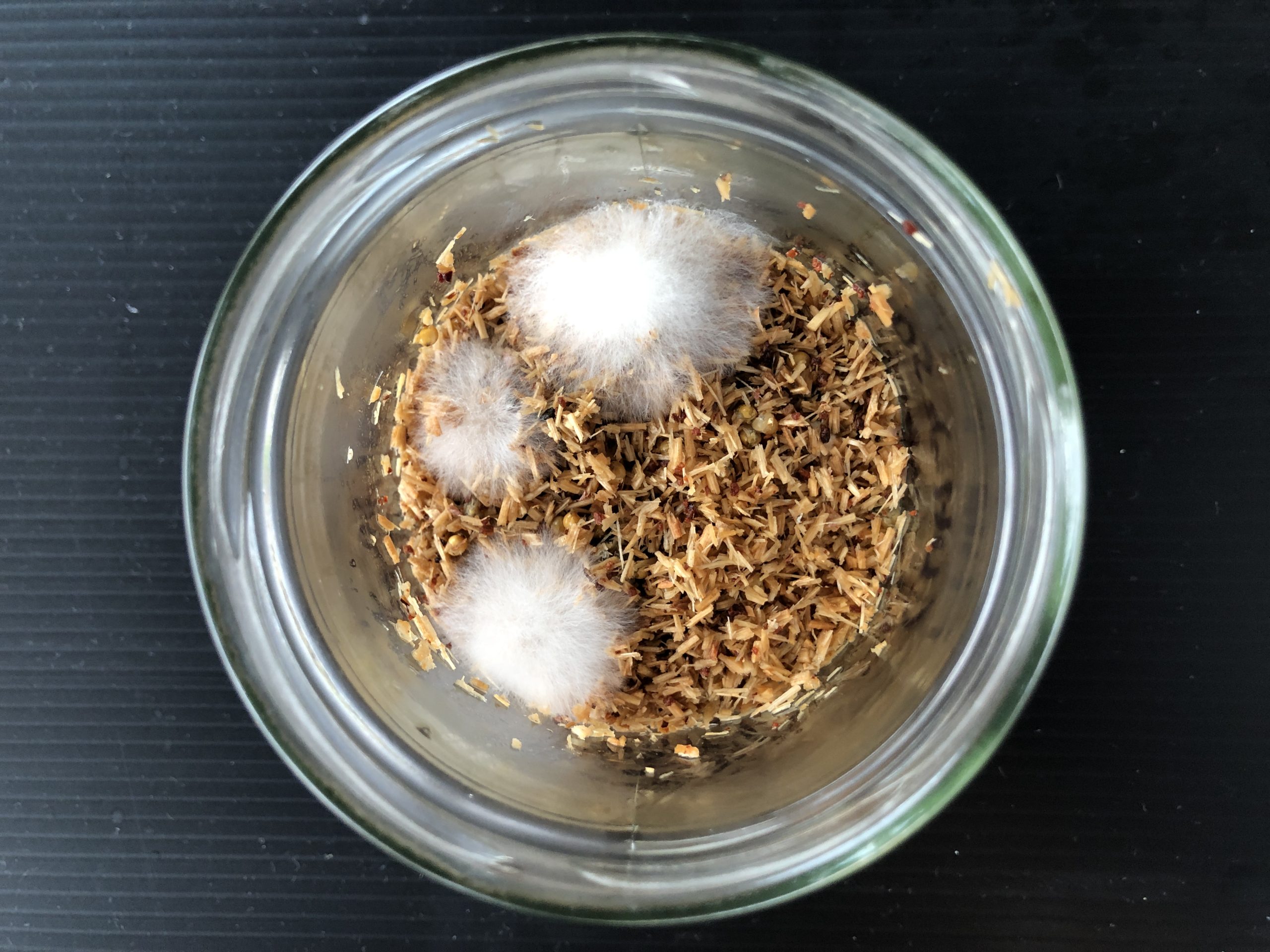
Thesis
The outcome of the research is bundled and bound into the Wood for Food book. Read it here.
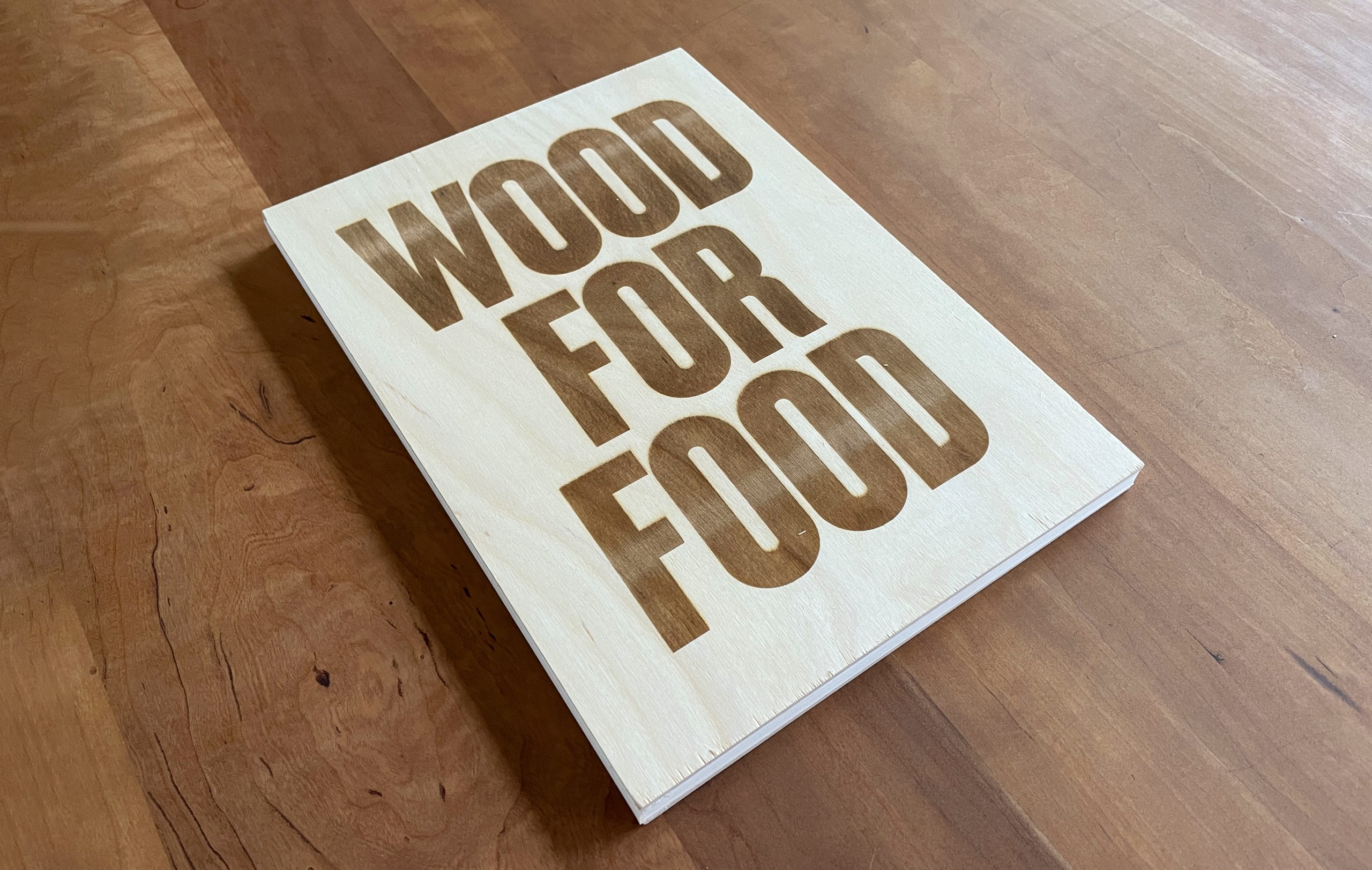
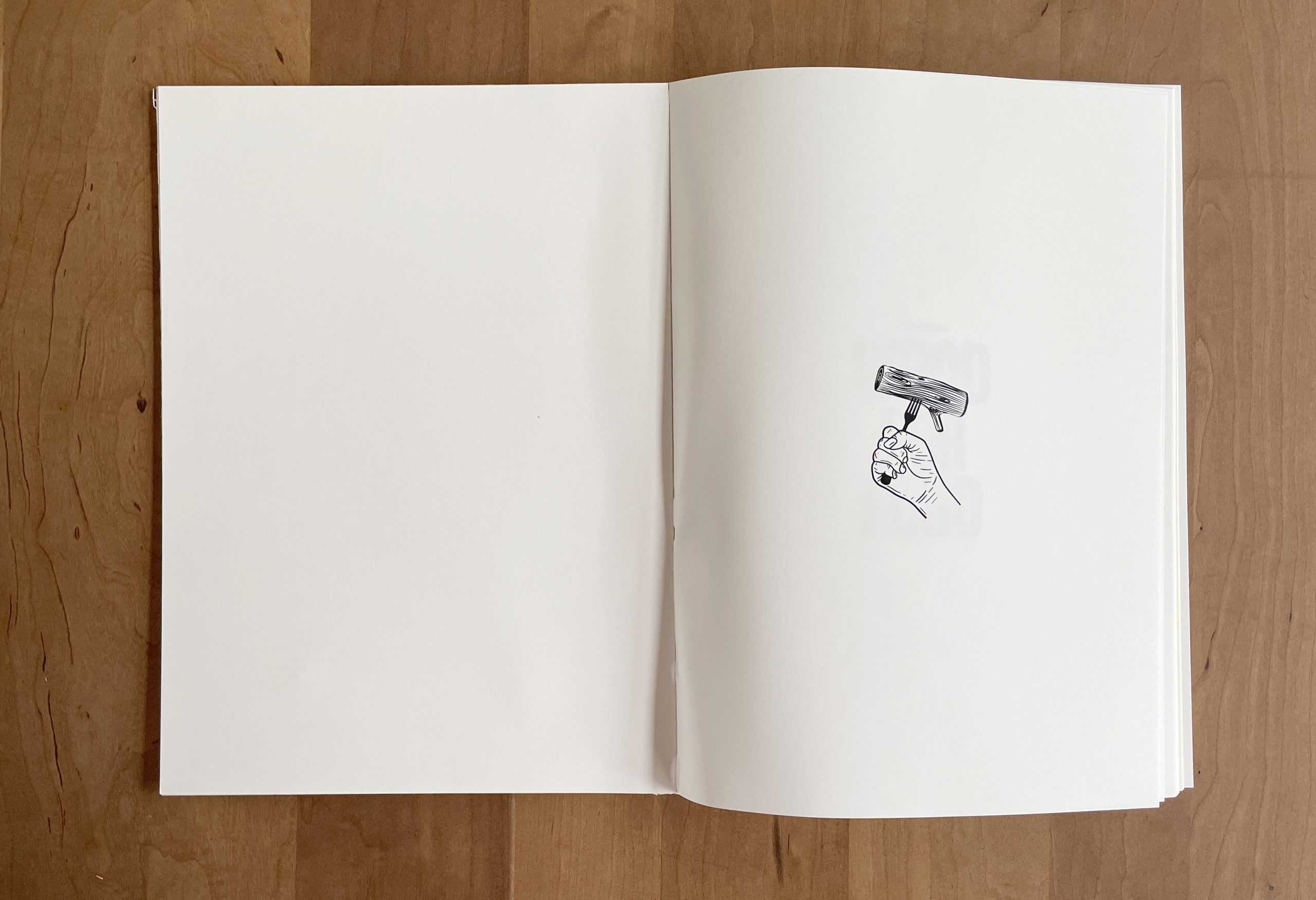
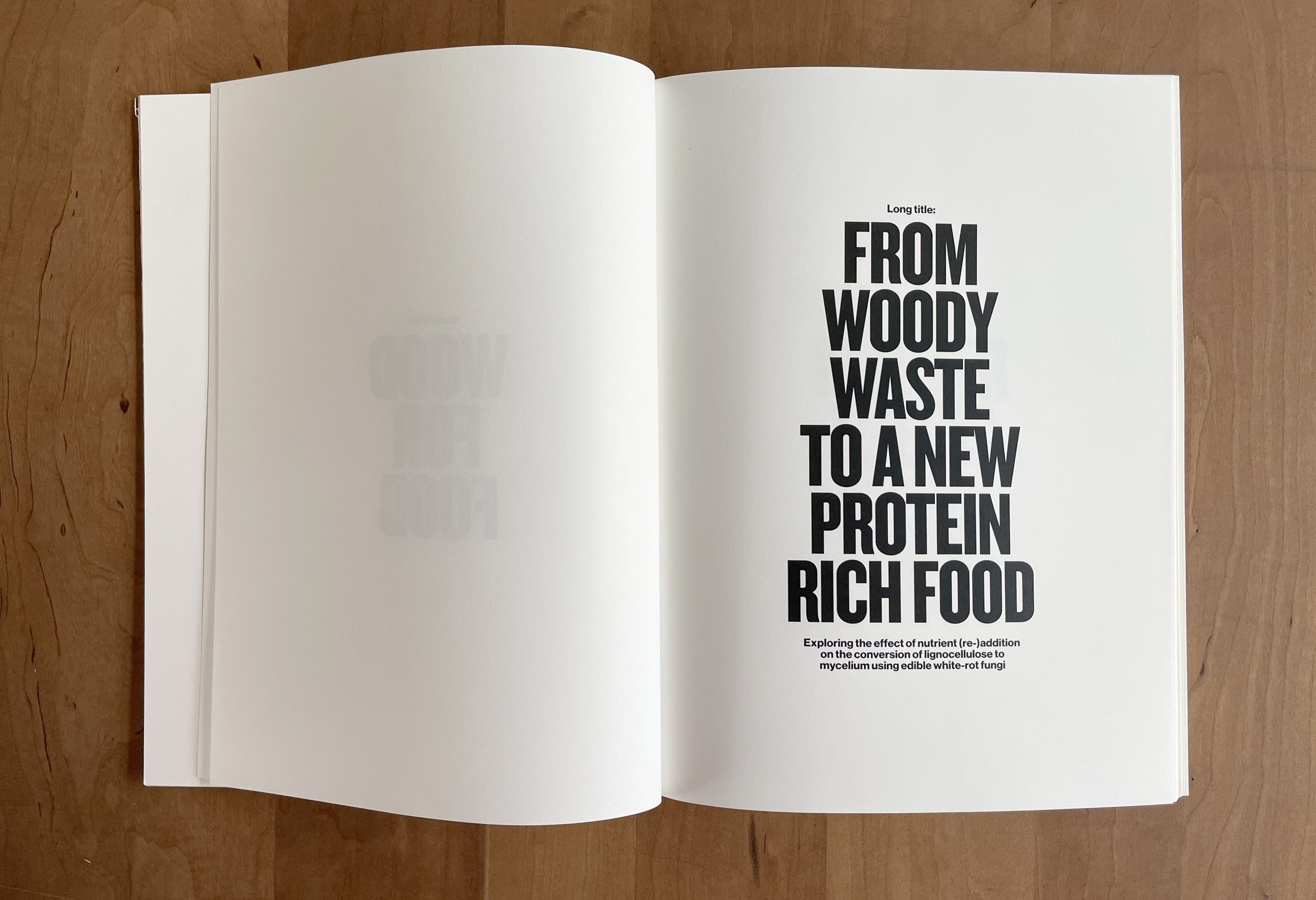
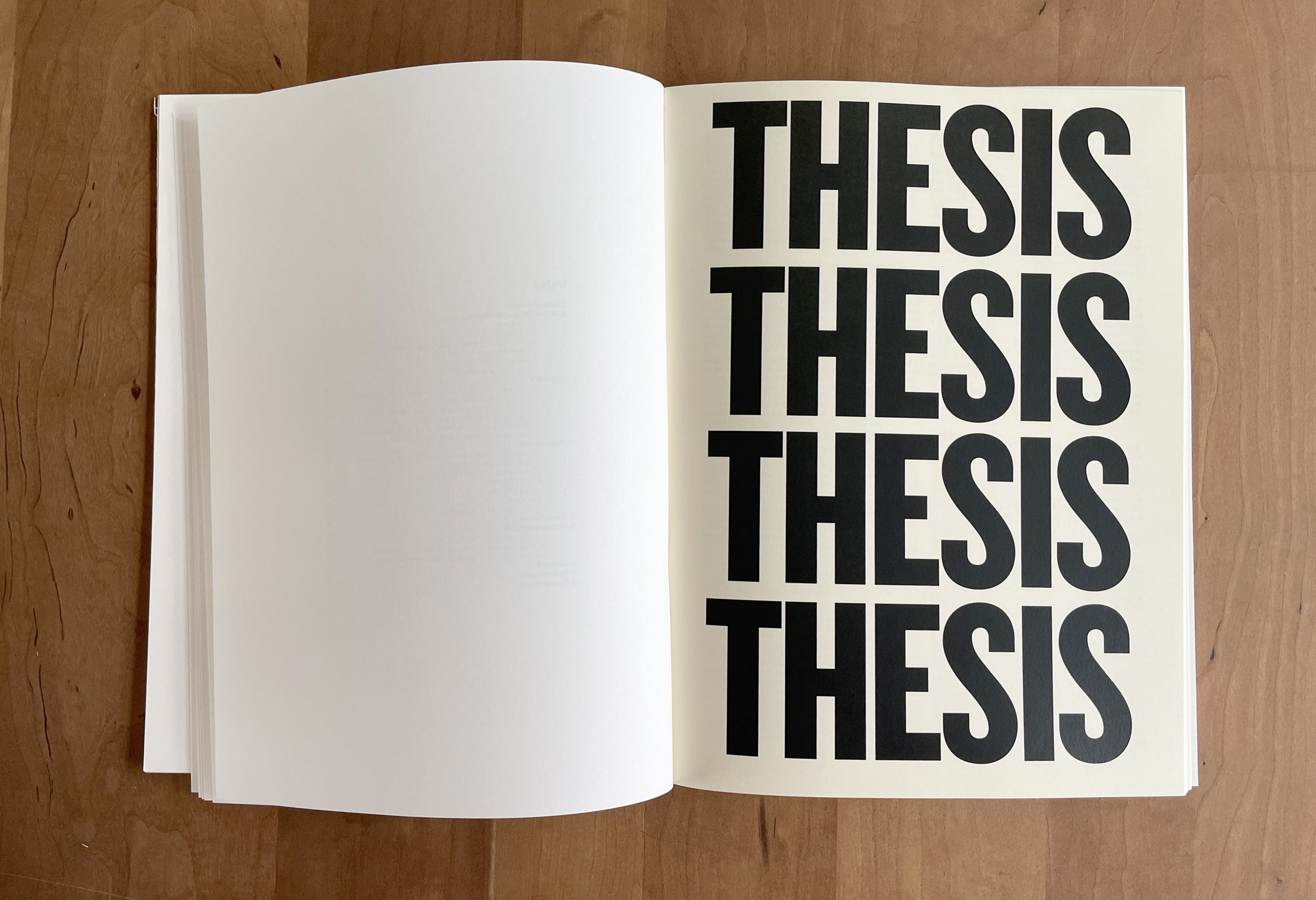
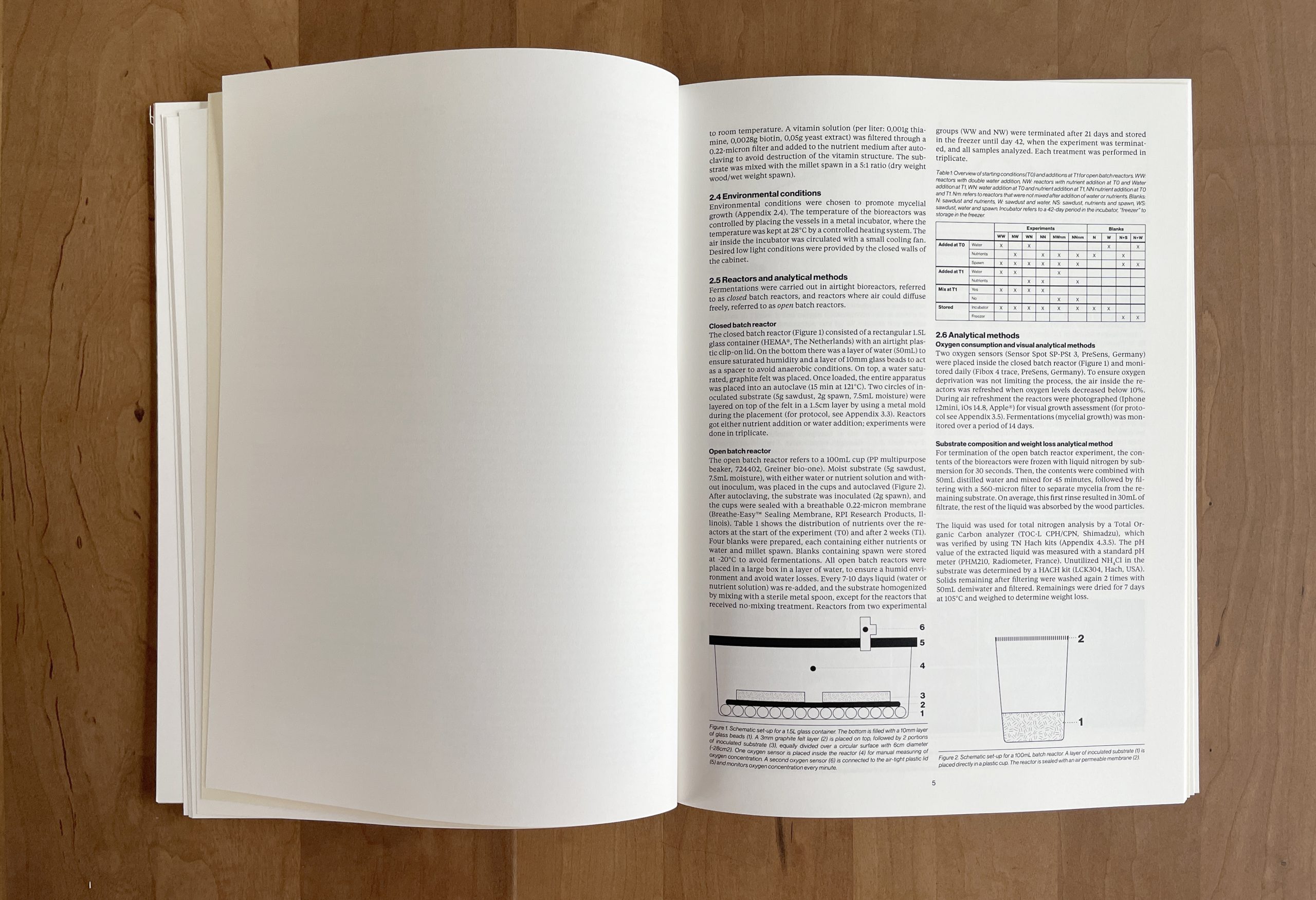
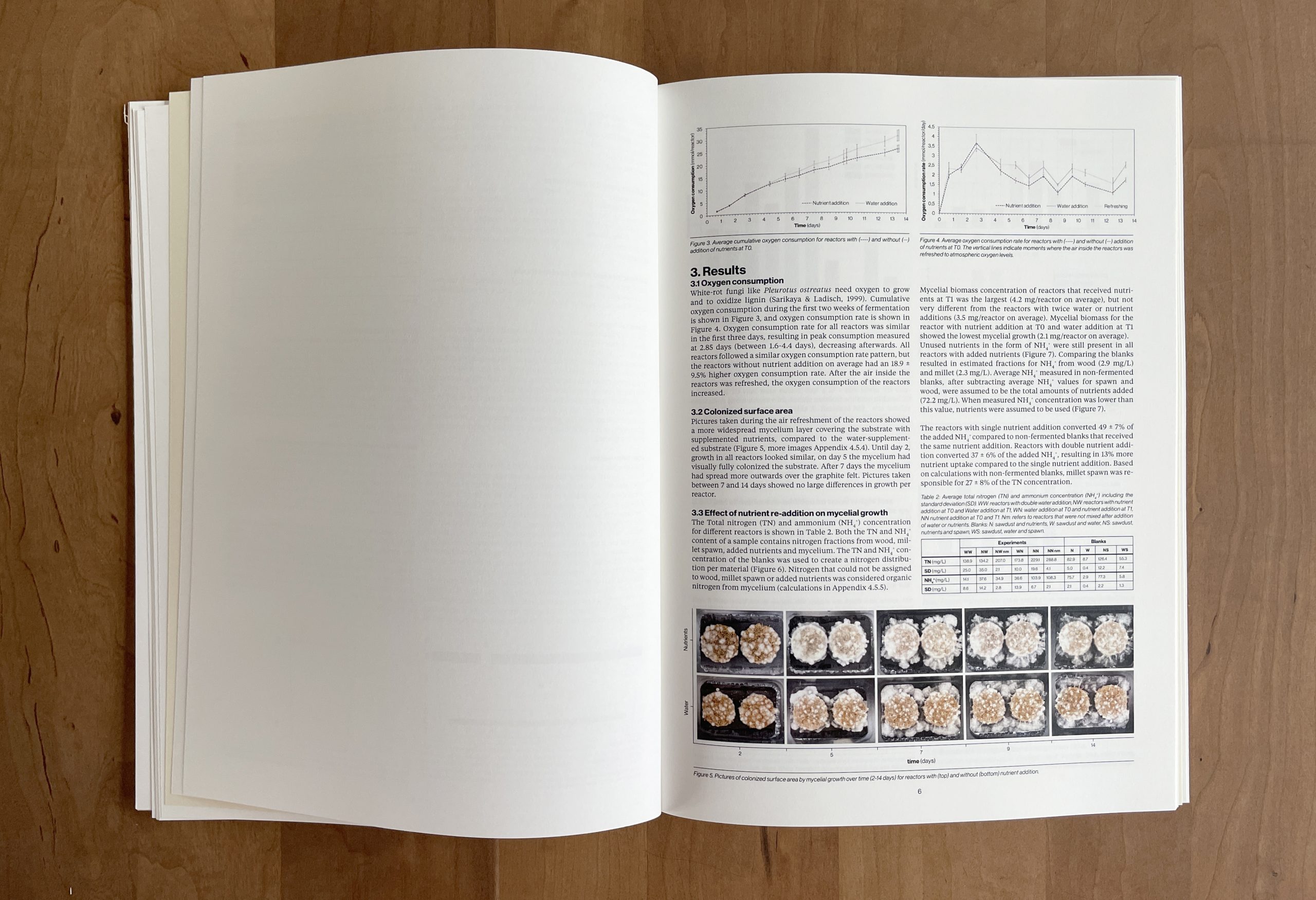
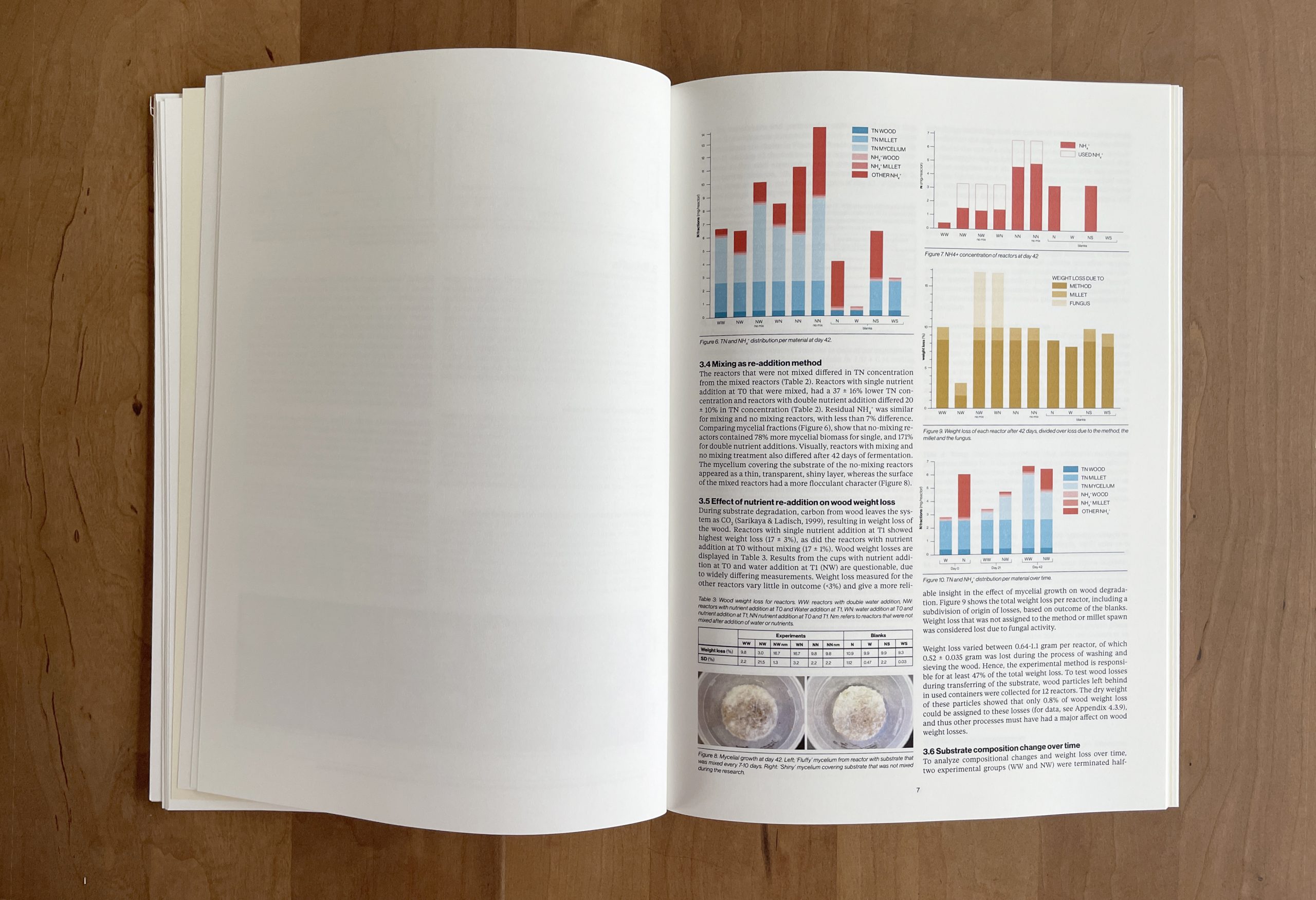
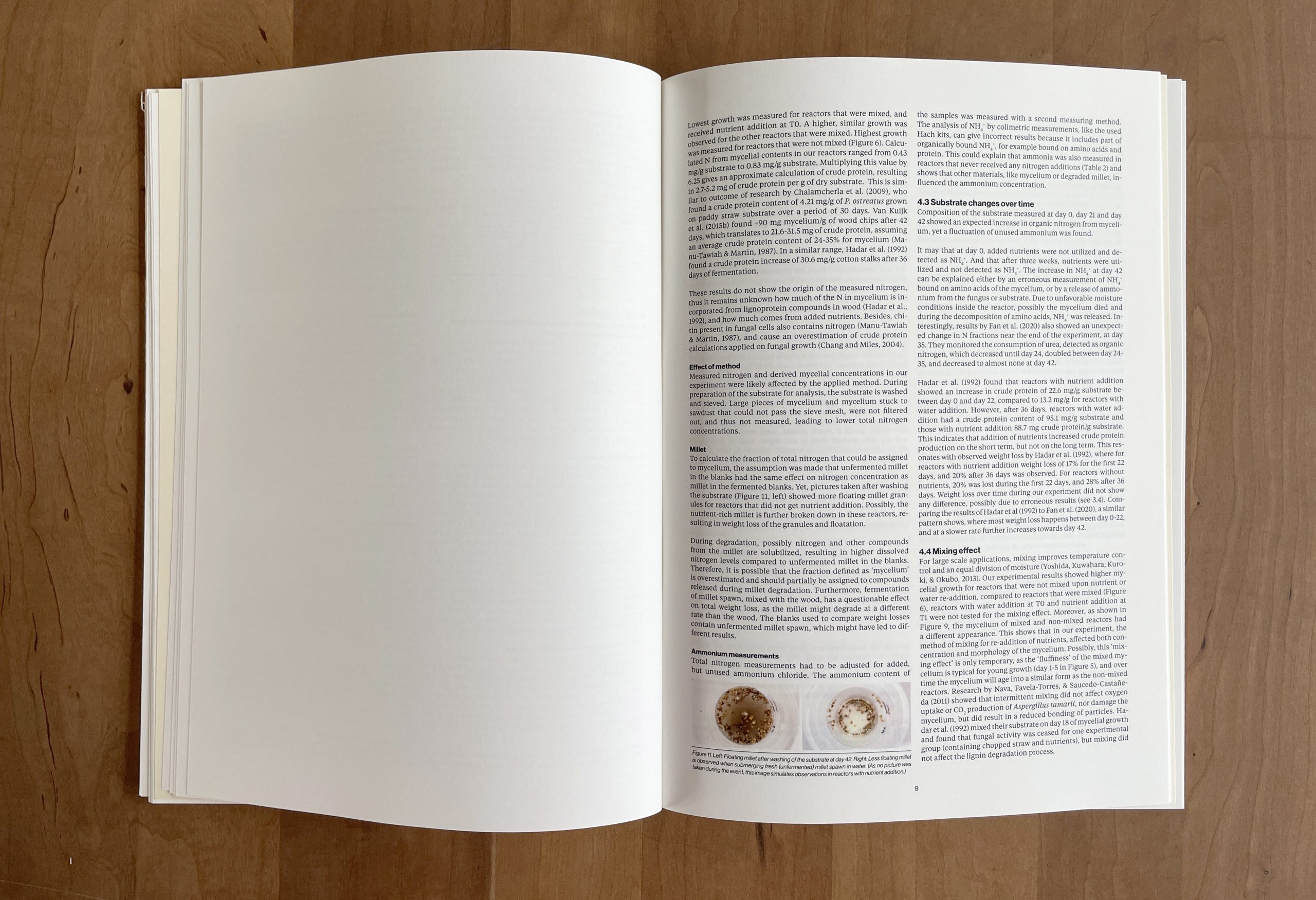
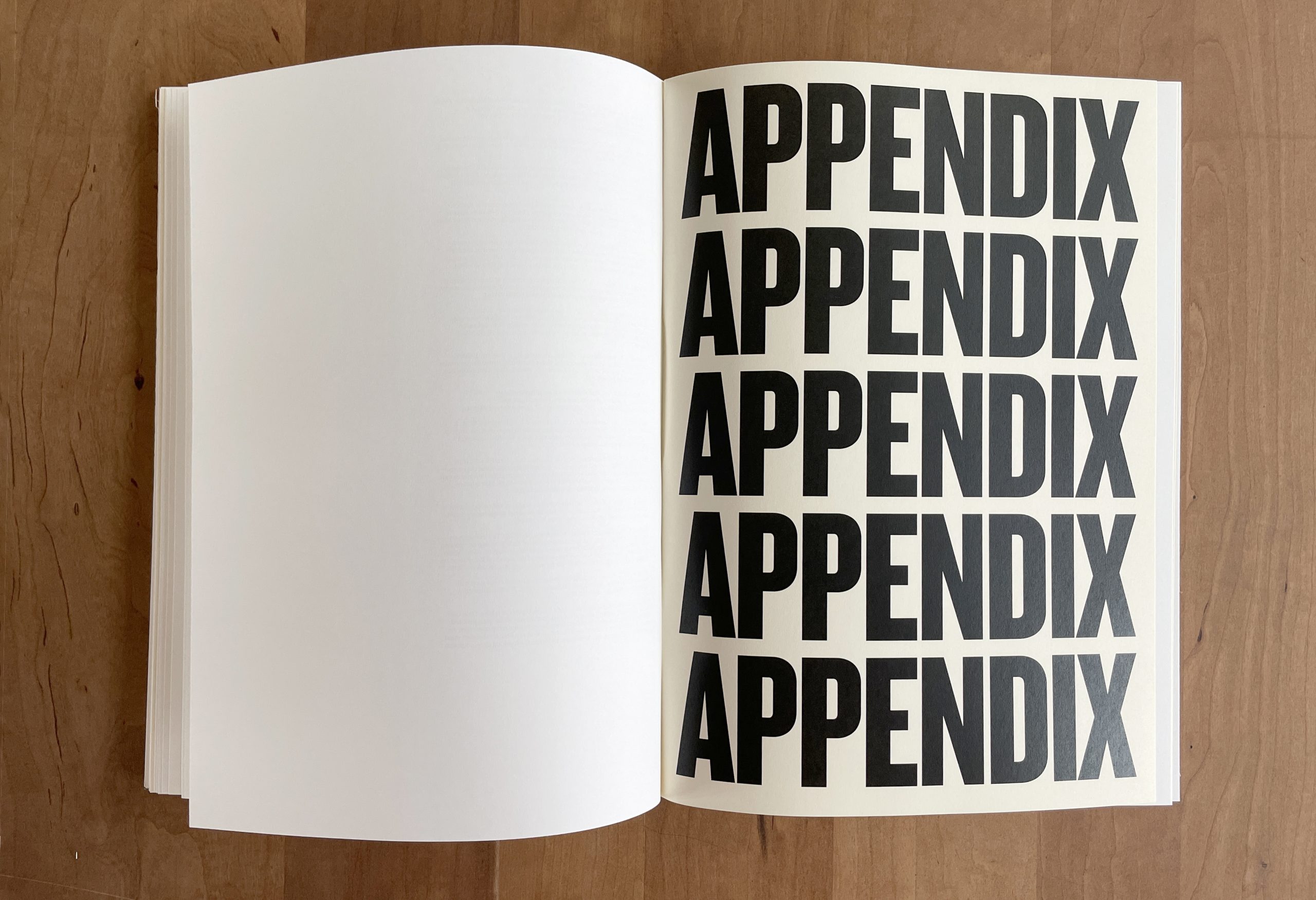
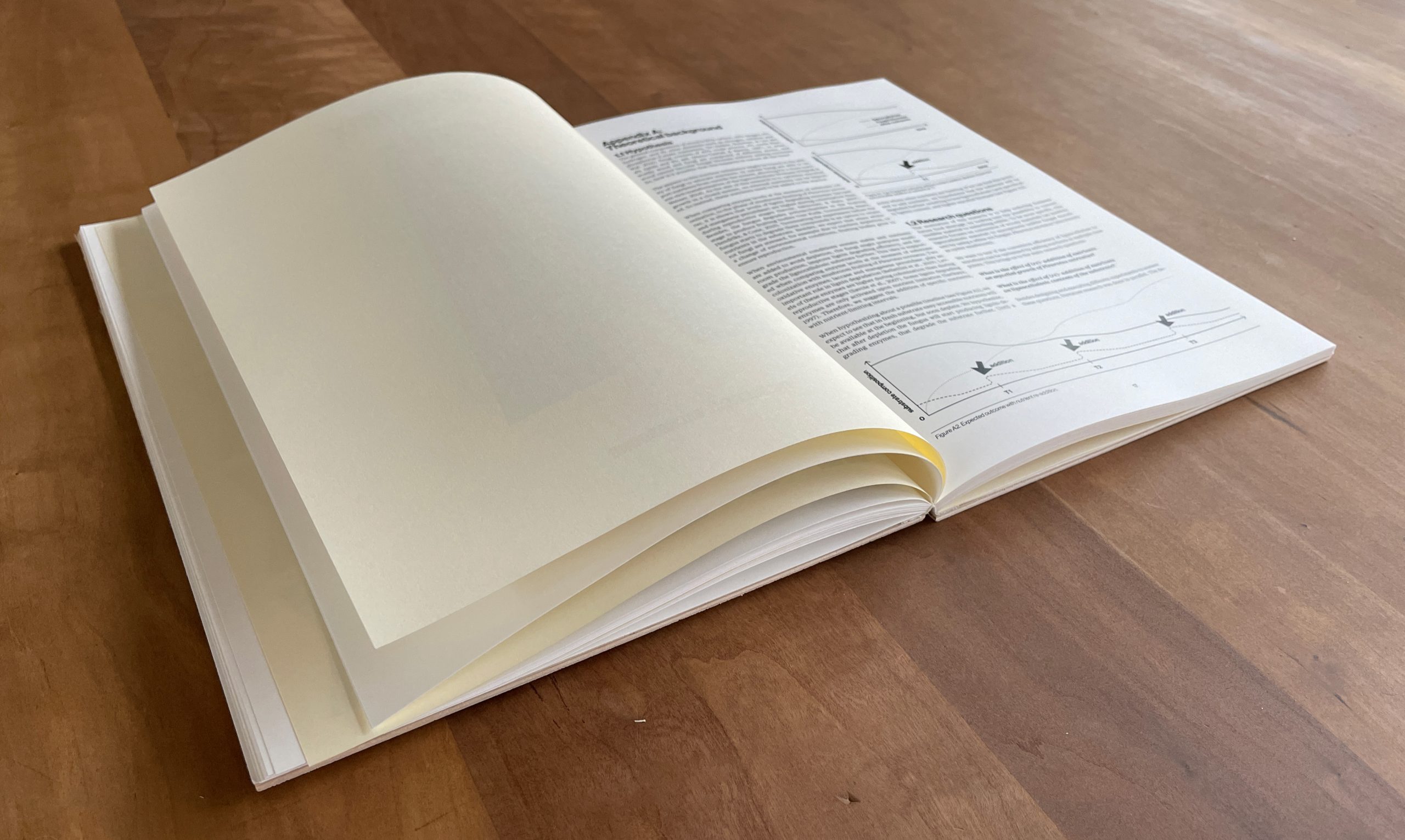
Project credits
Concept & thesis: Merel Witteman
Supervisors: Wei-Shan Chen, Annemiek ter Heijne, Anran Li
Video: voice from Melanie Hyams, sounds by Thomas Peters, animation by Merel Witteman
This research idea won the NWO Open Mind Challenge in 2021, and was rewarded with 50.000 euros to continue the research.
